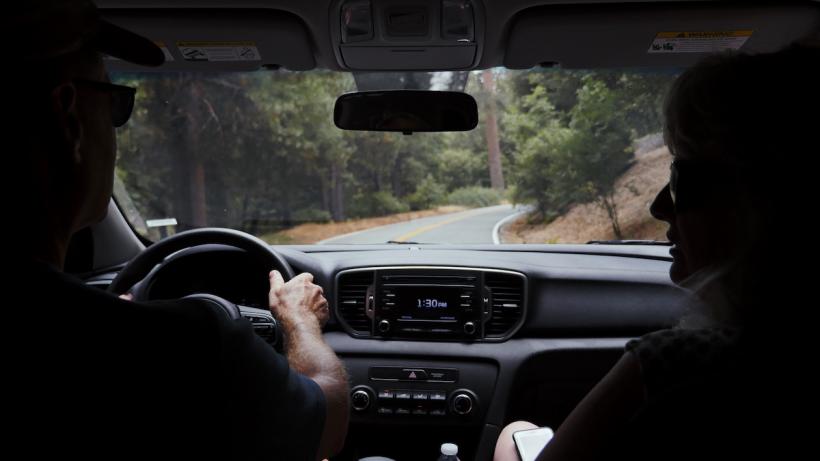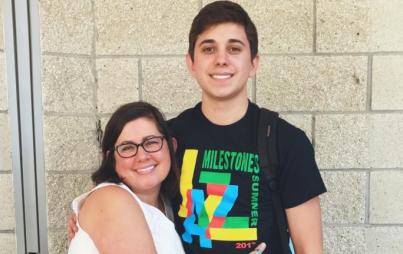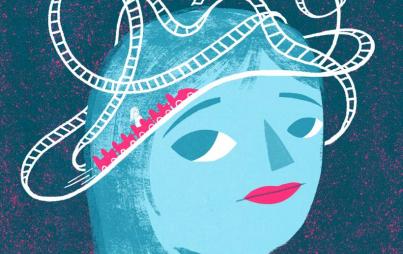
Photo by Brian Erickson on Unsplash
When I was young, I couldn’t wait to drive. I imagined I would own a pink car — something sleek and sporty, with a retractable roof and shiny leather seats. I imagined my car would have a killer stereo system, from which I could (and would) blast the latest pop beats, and I imagined I would barrel down the highway at 60-plus miles an hour, with the top down and my long, blonde locks blowing in the breeze.
But sometime between six and 16, things changed. I changed, and instead of buying my dream car, I bought a bus pass — a refillable card which gets me from city to city and state to state.
Now, I’m 35 years old and cannot drive.
I never have, and I probably never will. Of course, I know that sounds absurd. Driving is both a necessity and a right of passage. No other act is more symbolic of adulthood and one’s “coming of age,” but there are numerous reasons why I don’t drive. My mother is considered night-blind. She was unwilling to teach me, unable to teach me and — living pennies above the poverty line — we could not afford an instructor, let alone the insurance and my inevitable car. I have lived in or around a city my entire adult life. Trains are plentiful, buses are abundant, and operating a motor vehicle isn’t very important. (Many New Yorkers never get their license.)
However, the main reason I do not drive is fear. I have generalized anxiety disorder, panic disorder, and bipolar disorder, and my illnesses paralyze me.
They keep me from getting behind the wheel.
You see, my anxiety disorder rattles me. My hands tremble, my heart races, my vision blurs, and I am shaky. I live “on edge.” It also causes me to worry — excessively — and when it comes to driving, those fears are endless.
I worry I would hurt myself or others. I might fail to brake and send my car into a lake, or the backside of someone else’s vehicle. I worry I would miss a turn and become lost, in some rural, GPS-less land or the “bad part” of town. I fear I could become trapped in a tunnel, and there could then be an explosion, causing a fire to consume my car. (Well, that or a flood.)
And I worry that these things will endanger my husband, my daughter, or my newborn son. But my fear doesn’t end. Why? Because bipolar disorder is unpredictable.
You Might Also Like: My Bipolar Disorder In Five Dates
Bipolar disorder is defined by extremes. Mania makes me believe I am unstoppable. I feel strong, God-like, brazen, and brash. My depressive episodes are dark. I feel hopeless and helpless and endure crippling lows, and both bring about suicidal thoughts. When I am cycling, I genuinely want to die. And that? That scares me.
I worry that — if I owned a car — I would be reckless.
I might drive myself off a bridge or straight into a brick wall. So I avoid things and places which I could use impulsively and swiftly, which would give me a quick escape from life.
The fear of driving is not new nor is it unique. According to a 2006 study conducted by Dr. Joanne Taylor and Dr. Diana Paki and published in the New Zealand Journal of Psychology, driving anxiety (also known as vehophobia) is a relatively common condition: 8% of survey respondents reported moderate to extreme uneasiness about driving and 7% expressed a moderate to extreme fear, one which precluded them from getting behind the wheel. And while the reasoning behind said fears varies — some individuals do not drive because they are claustrophobic while others avoid driving because they are agoraphobic — anxious drivers like me steer clear of the road.
The good news is that there is help, and there is hope. Some doctors prescribe medication to help individuals overcome their fear of driving. Mindfulness, meditation, and exposure therapy have all proven beneficial, and cognitive behavioral therapy remains the “gold standard” for treating anxiety.
CBT therapists can help you work through your fears and then give you a series of reasonable and easy-to-implement coping skills.
There are also numerous “workarounds,” i.e., walking is an option. If you feel comfortable with colleagues, carpooling may be a choice. Rideshare services are numerous — and available across the United States — and many cities have reliable mass-transit systems.
As for me, while I would love to get it together and get behind the wheel, I know that — right now — not driving is a good decision.
It is a smart and responsible decision, and it is the right decision because I am safe. My family and kiddos are safe, and that is something. That is everything.








